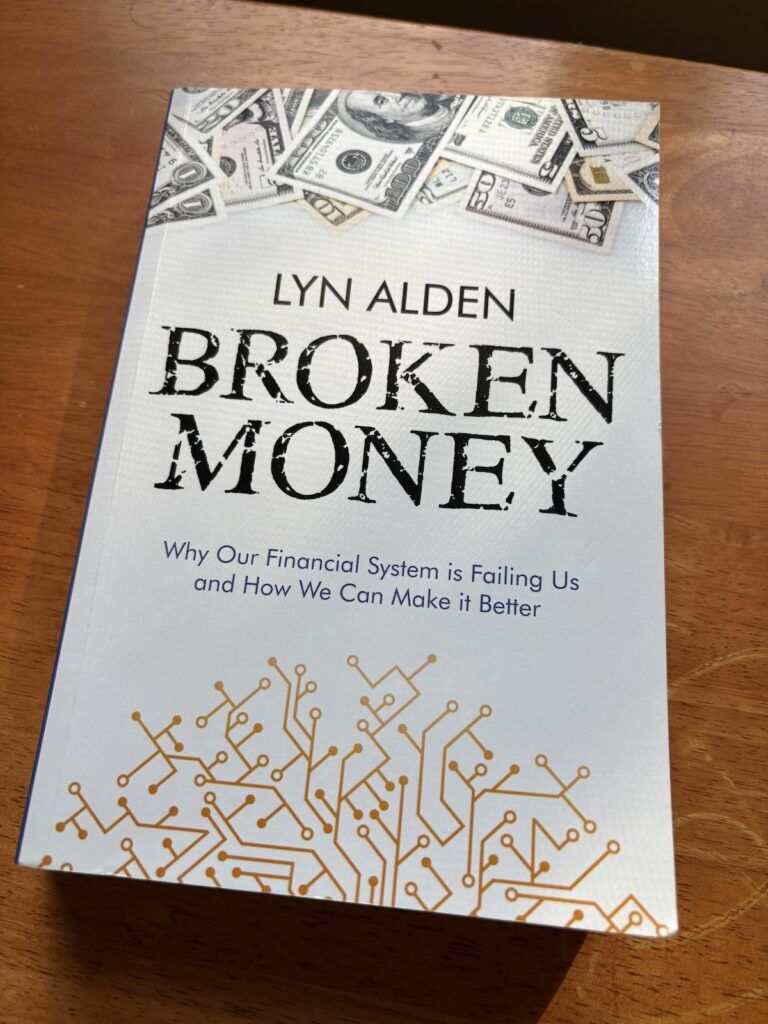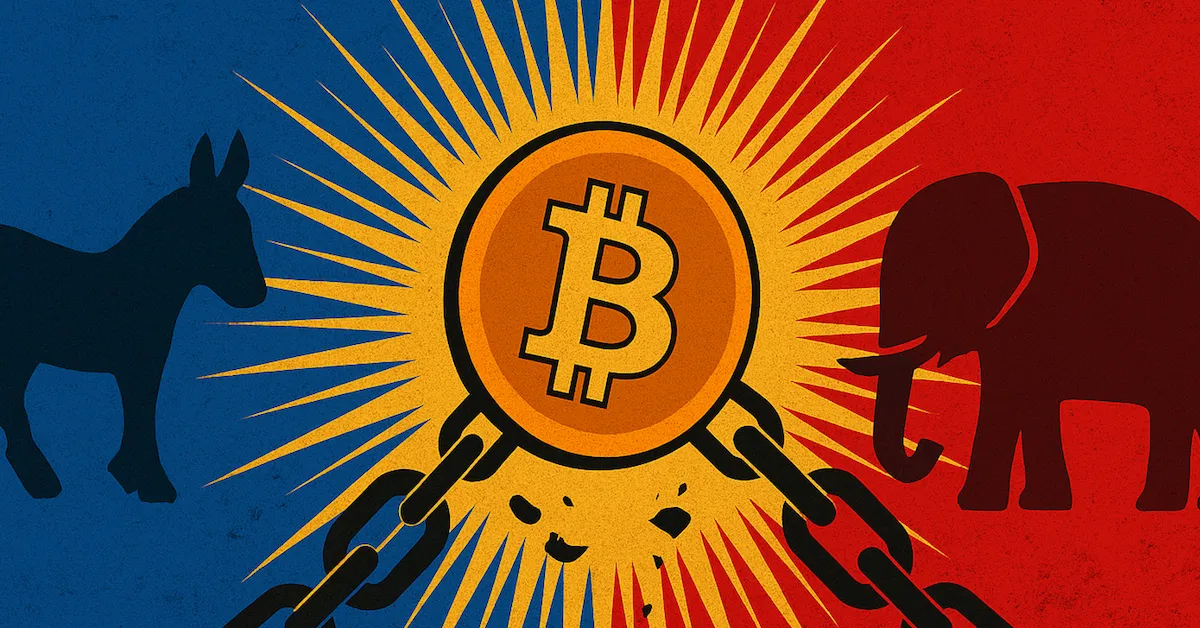A month ago, Harshvardhan (“Hash”), an alumnus of the MIT Bitcoin Club and organizer of the MIT Freedom Tech Expo, told me in an interview about how a friend of his, a social worker in Nepal who was on site during the recent protests in the country, No like Bitcoin.
“There are a lot of people with a left-wing ideology who still think bitcoin is a capitalist tool, and they still don’t feel very comfortable with it,” Hash explained.
I’ve thought about this a lot since we spoke.
As someone who was once more politically liberal, I still have many friends and acquaintances who seem to cringe at the mere thought of me writing about Bitcoin for a living. I get the feeling they think I’ve become a right-wing fanatic who only cares about money.
I can understand why they might think that (despite it not being true). In the United States, Bitcoin has become effectively synonymous with the Trump administration, and most of what the average person sees about it in the mainstream media concerns its price rising or falling.
In other words, if you are not intentionally looking for stories about how Bitcoin facilitates financial inclusion, freedom to transact, and protection from currency inflation/devaluation, then you are unlikely to find them, meaning the average person is unlikely to, if ever, be exposed to the human rights side of the Bitcoin story.
So, if you’re looking for some examples or thoughts to share with your friends who may be on the political left and consequently dislike Bitcoin, I’ve included a few below:
Financial inclusion
One of the most powerful stories of Bitcoin enabling financial inclusion is the story unfolding in the informal settlement (i.e. slums) of Kibera in Kenya right now.
Kibera is the largest informal settlement in Africa, and thanks to the practical work that Afribit Kibera is doing to educate members of the Kibera community on how to use Bitcoin, more and more of Kenya’s poorest and most financially vulnerable people have been brought into the digital economy and are saving for the first time in their lives.
The story of the work that Afribit Kibera is carrying out was highlighted in a recent BBC segment:
One of the points not mentioned in this segment, however, is that many Kibera residents are refugees from other African nations and are not currently entitled to a national ID.
Without a national ID, these residents cannot use M-Pesa, a digital payments system ubiquitous in Kenya.
However, with a Bitcoin Lightning wallet and Tando, a homegrown Kenyan app that allows payment in bitcoin and payment in Kenyan shillings, these community members can take part in the digital economy, as neither requires Know Your Customer (KYC) checks. (Yes, I know, some custodial Lightning wallets require varying degrees of KYC, but non-custodial Lightning wallets don’t.)
Freedom of transaction
Most of us in the West take for granted the freedom to transact on digital payment channels like PayPal, CashApp or Revolut, which means we haven’t had much reason to think about how devastating it would be if our accounts through such services, or our bank accounts, were frozen or closed.
However, activists and dissidents around the world, especially those living under authoritarian regimes, often find their accounts closed when they speak out against established powers. Devaluing people or organizations that challenge the power of authoritarian rulers has become one of the first moves in the dictator’s agenda.
One of the clearest cases of this was when the Putin regime closed the bank accounts of opposition leader Alexei Navalny’s Anti-Corruption Foundation.
That said, we have also seen a wave of debanking in the United States under the Biden administration. During Operation Choke Point 2.0, the Biden administration devalued a number of Bitcoin and cryptocurrency companies, seemingly for no reason other than being politically out of favor.
This shows that while the banking system and fintech companies are technically still private institutions, it only takes a certain amount of pressure from the powers that be – even democratically elected officials – to stop people and companies from transacting.
In his book Broken moneyLyn Alden highlights the importance of bitcoin regarding this issue.
It states that “self-custodial financial services force governments to actually charge people with a crime before they can push to freeze their accounts.”
Alden added that Bitcoin is bigger than political ideology in this sense.
“[Bitcoin] it is not a question of “right or left”, because it is enough to simply imagine that the least favored politician wins the next election, or two or three elections from now,” he wrote.

Freedom from inflation
Many who are unfamiliar with Bitcoin do not understand the significance of its limited supply (there will only ever be 21 million bitcoins).
A perfectly finite money supply contrasts sharply with fiat currencies, which have no supply limit. Fiat currencies can be printed infinitely, which devalues the time and labor of the users of these currencies.
Those of us living in the United States have felt the pain of this currency devaluation, as inflation levels here have been significantly high. However, it is important to note that the US dollar is essentially the cutest pig in the pen when it comes to fiat currencies.
Most other currencies are devaluing at an even more alarming rate, and the most severe examples of this are what has happened in countries like Venezuela, Lebanon, Argentina, and Türkiye.
That’s why when Sabina Waithira, one of the co-founders of the aforementioned Tando, teaches bitcoin to university students in Kenya, she emphasizes that it offers freedom from inflation.
This kind of freedom is especially important in a country whose currency has inflated at levels of up to 14% annually since the mid-2000s.
Bitcoin is politically neutral
Because Bitcoin is an open protocol and is not governed by one person or institution, it is not inherently political.
Sure, the Trump administration has taken a pro-Bitcoin stance, which may discourage those on the political left, but that doesn’t mean Bitcoin doesn’t facilitate concepts like financial inclusion, an issue that liberal politicians tend to support.
So if your politics are more in line with liberal ideology, be sure to check out the work of the nonprofit The Progressive Bitcoiner and that of Jason Maier A Progressive’s Case for Bitcoin.
And if you find yourself politically homeless but still a human rights advocate thanks to Bitcoin, be sure to learn more about what the Human Rights Foundation is doing through its Financial Freedom division and sign up for its Financial Freedom newsletter.
Bitcoin is a tool for all humans, those on the left and right political spectrum, and it is time this message became more widespread.
